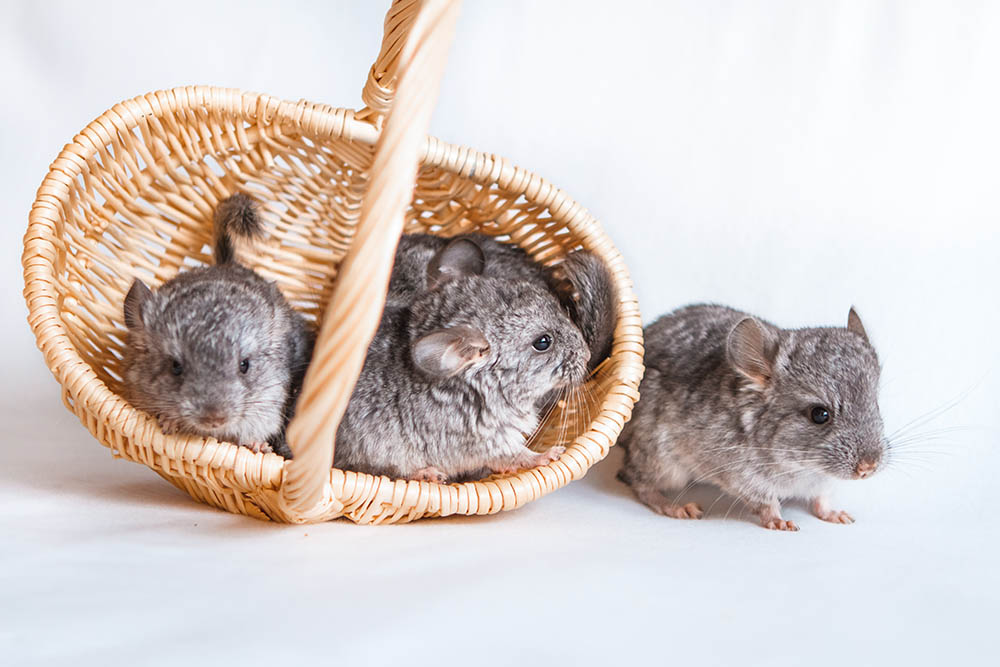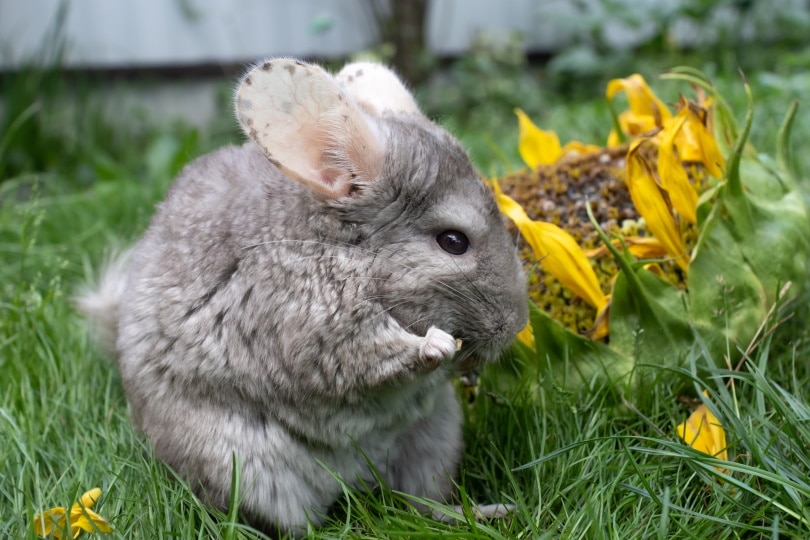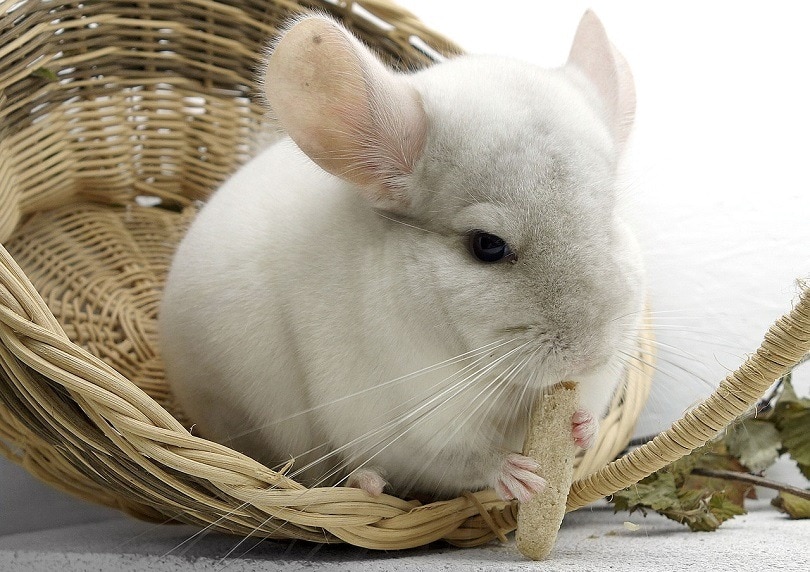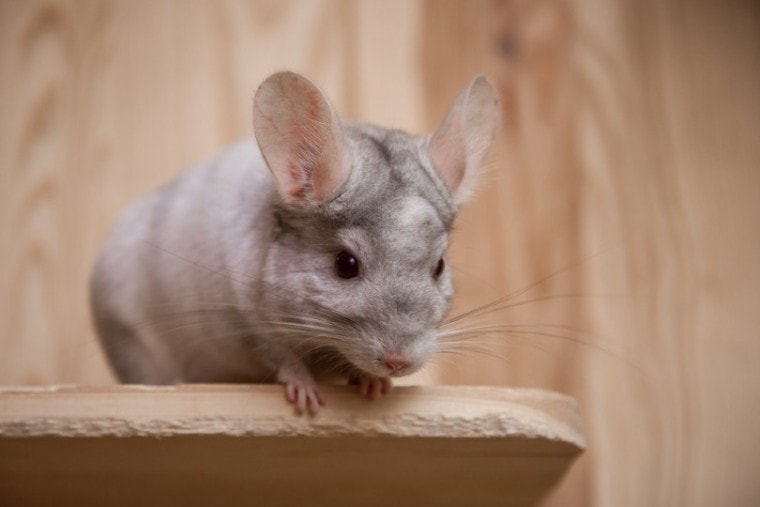
If you’re allergic to dogs or cats, you might be looking for a hypoallergenic animal you could bring home. Some of the information you have found online suggests that chinchillas are hypoallergenic. Is that even possible?
No, chinchillas are not hypoallergenic so people can be allergic to them. Read on to learn more about this small mammal.
What Are Chinchillas
Chinchillas are popular exotic pets, but they’re not suitable for everyone. They tend to be fast and can be skittish. For people looking for an affectionate pet, remember that not all chinchillas want to cuddle.
These animals hail from the Andes Mountains of South America 1. They need a large enclosure that allows them to run, jump, and climb, which helps mimic their natural environment of rocky cliffs and crevices.
Chinchillas have a thick, incredibly soft coat. The fur is very dense, and chinchillas don’t take traditional water baths like most mammals. Instead, they take dust baths.
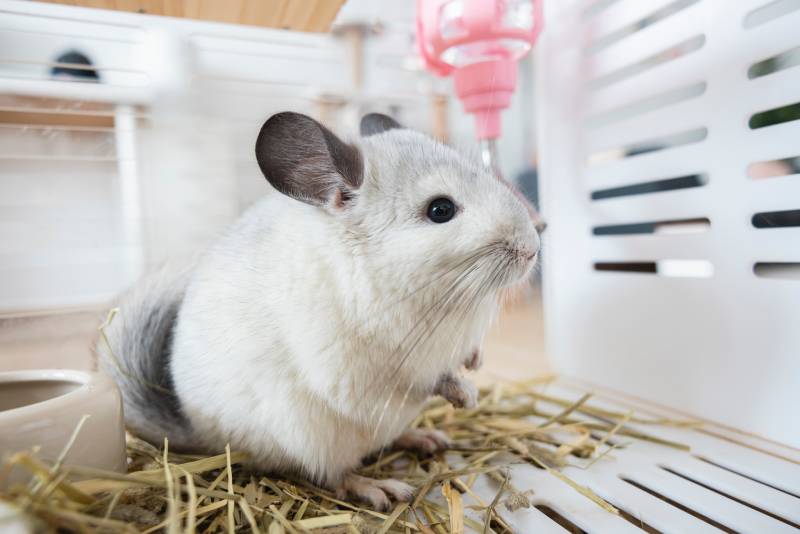
Are Chinchillas Hypoallergenic?
Let’s get right to it. Chinchillas are not hypoallergenic, although they might be slightly less allergenic than some animals like cats. Allergic signs that have been associated with exposure to chinchillas include 2:
While chinchillas don’t typically produce much (if any) dander, which is what most people allergic to animals are allergic to, people can still be allergic to these critters with dense hair.
Another set of potential triggers for people with chinchillas is the items they need to survive and thrive, such as dust baths, hay, and bedding.
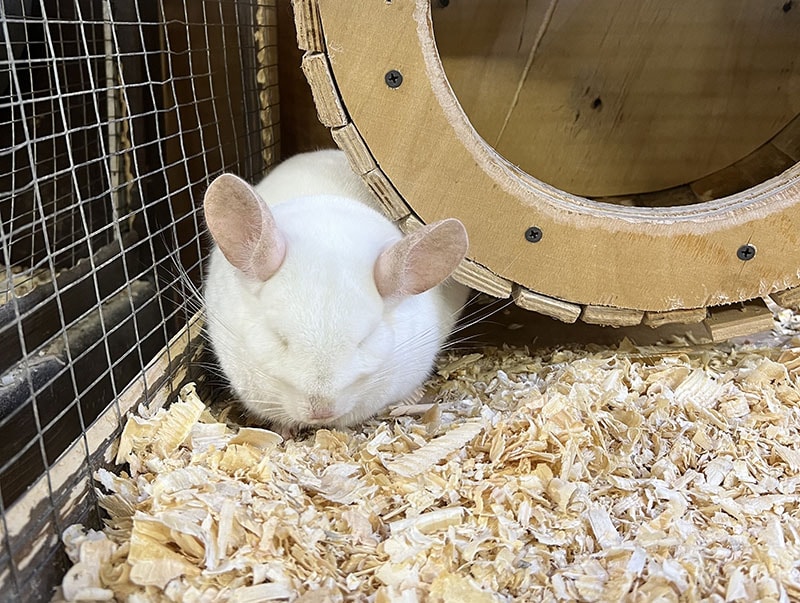
1. Dust Baths
Chinchillas have thick fur that cannot get wet, or you risk having your chinchilla’s coat develop fungal infections and rot. Instead of a water bath, they take dust baths several times weekly. You’ll need to use a dust product specifically for your chinchilla’s dust bath.
You can look into a variety of containers for them to bathe in, as there are some containers that are a bit more enclosed but still allow your chinchilla to get quite dusty. Keep in mind there’s still a good chance that dust will fly up and trigger allergies or asthma.
2. Hay
The main components of a chinchilla’s diet are hay-based pellets and timothy hay. While the pellets are less likely to trigger allergies, hay can be an allergy trigger for some people. In addition, hay can release dust into the air, which may irritate some chinchilla owners’ asthma.
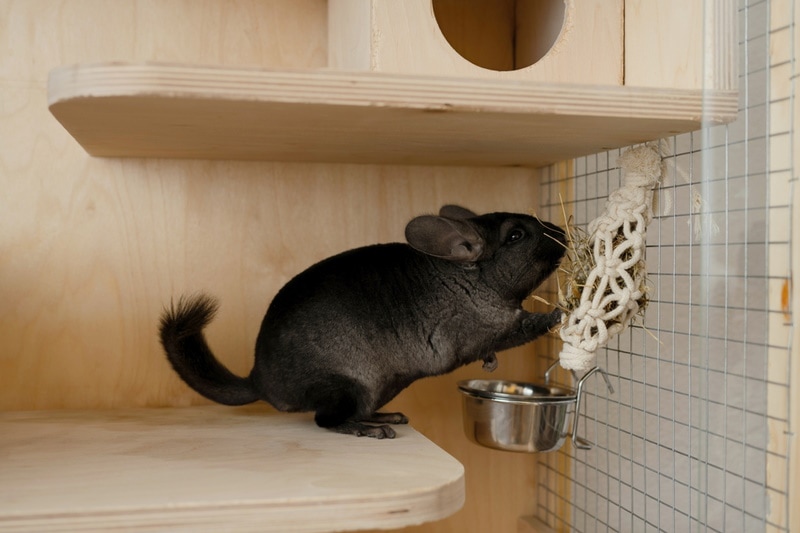
3. Bedding
The bedding you use for your chinchilla can also trigger allergies. You should use dust-free bedding, but even ideal bedding materials like hay can be associated with some dust. To keep things safer for you and your chinchilla, use bedding such as:
Don’t use newspapers, as the ink can be toxic. You should also avoid cedar shavings.
Some sites recommend fleece for bedding for chinchillas. While this material is soft and less likely to trigger allergies, if your chinchilla soils it, they could get damp, which is unhealthy and can lead to fungal skin infections.

Frequently Asked Questions
Is chinchilla dust harmful to humans?
We don’t tend to think of chinchilla dust as being harmful to humans. It’s usually a finely powdered material known as Fuller’s earth. However, this dust can trigger respiratory conditions such as asthma. If anyone in your household has a respiratory condition that might be exacerbated by breathing in the dust as your chinchilla bathes or when you have to clean up the resultant mess.
Can chinchillas make you sick?
Unfortunately, chinchillas can be reservoirs for Giardia, which is an intestinal protozoon. In one study, 66% of studied chinchillas had evidence of Giardia in their fecal samples. A large portion of the samples tested were subtypes of Giardia that people are at risk for contracting.
As a zoonotic condition, you could potentially get giardiasis from your pet chinchilla, something to be aware of, especially if there are immunocompromised family members in the house. The main sign of giardiasis is diarrhea.
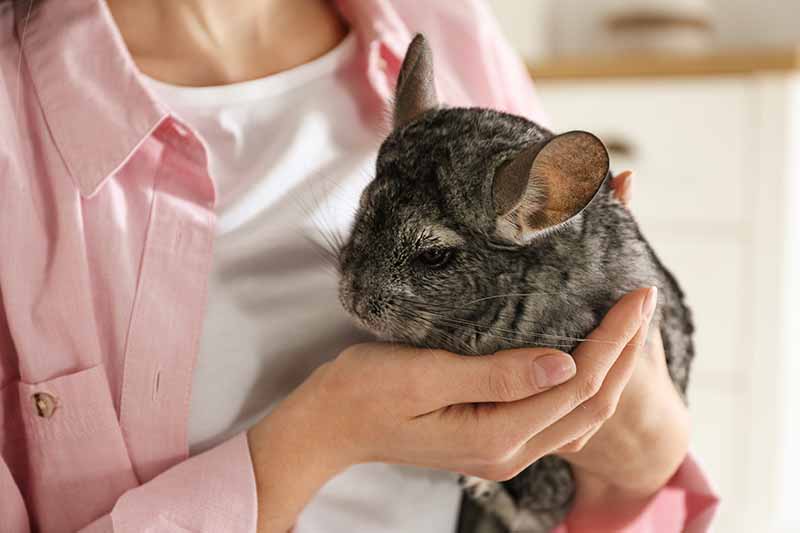
Do Chinchillas Trigger Asthma?
Chinchillas may not directly trigger asthma as they produce less dander than many household pets, but the products used to care for these fluffy critters may trigger asthma attacks. The hay used to feed chinchillas, the dust they bathe in, and their bedding can all release airborne particles into the air that may cause respiratory issues for pet owners.
Conclusion
Chinchillas are often incorrectly classified as hypoallergenic, but there have been reports of chinchilla allergies. In addition, the bedding and food for chinchillas can trigger allergies and even asthma, so these pets should be owned and handled cautiously by people who may be allergic to these animals or items.
Related Read:
Featured Image Credit: Luniaka Maria, Shutterstock


